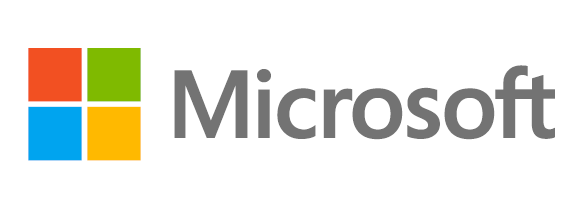In today’s rapidly evolving digital environment, ensuring cybersecurity has become an increasingly difficult challenge. Security teams face numerous complex challenges that require constant vigilance and adaptability. To maintain integrity and protection in cloud environments, it is crucial to stay informed about emerging trends and threats. With an increasing number of threats, even minor negligence towards security can have severe consequences. To mitigate these risks, security professionals must undergo thorough training and possess a comprehensive understanding of the unique cloud security considerations of cloud computing.
As more organisations adopt cloud technology, the possibilities of cyberattacks expand, requiring proactive measures from security teams. Organisations must have a deep understanding of the cloud environment security to overcome various cyber threats. This involves maintaining control of encryption keys, prioritising risks, and utilising real-time security tools. It is important to control access securely and manage it well to protect data in different types of cloud environments. As the cloud evolves, security teams need to stay proactive and informed about new trends and threats. To improve cloud security and protect data, organisations must overcome issues like human mistakes and increasing security risks.
Key Findings from a Comprehensive Survey of Cybersecurity 2023
A recent survey by Orca Cloud Security Platform found important information about cloud security risks in 2023. The survey analysed scan results from January to May of this year and it revealed the most prevalent and severe security risks in cloud environments.
Let’s look at these key findings:
- Misconfigurations: The most prominent cloud security risk identified was the misconfiguration of cloud services and resources. Simple mistakes in setting up and configuring cloud environments can expose organisations to attacks and unauthorised access.
- Vulnerabilities: Unpatched vulnerabilities in cloud infrastructure acted as a significant threat to the security posture. Overlooking the latest updates and patches can leave systems vulnerable to threats.
- Insider Threats: The survey highlighted the increased concern around insider threats in cloud environments. Organisations must address the risk of insiders exposing cloud data security.
- Data Breaches: Data breaches in the cloud continue to be a concerning security risk for organisations. Many of them experienced a cloud data breach in the past year. This highlights the necessity of having strong security measures in place to protect data in the cloud.
- Lack of Visibility: The survey also uncovered that organisations find it challenging to maintain visibility and control of cloud environments. As cloud and hybrid systems increase, security teams find it difficult to keep consistent security policies and monitoring.
Cloud Security Incidents: Types, Impact, and Mitigation
The Orca Cloud Security Platform analysed scan results from January to May 2023. It found various cloud security incidents and their impact. The platform also identified ways to reduce these incidents.
- A common cloud security issue is unauthorised access. When hackers enter the cloud without permission, the consequences can be severe, leading to data breaches, compromised customer information, and reputational damage. To mitigate this, organisations must implement robust access controls, two-factor authentication, and regular monitoring of user permissions.
- Another type of incident is when attackers use vulnerabilities in the cloud to remotely execute harmful code. The impact can include granting unauthorised control over critical systems to hackers. To mitigate this risk, organisations should prioritise timely patching and updates, conduct regular vulnerability scans, and implement intrusion detection systems.
- Data breaches are also significant cloud security incidents. Whether through accidental exposure or targeted attacks, the impact can result in financial loss, legal consequences, and reputational damage. Mitigation strategies include implementing strong encryption, regularly auditing access controls, and conducting thorough security assessments.
By looking at these dangers of security breaches, organisations should regularly train and educate employees on best security practices, conduct comprehensive risk assessments, and stay updated on emerging threats and vulnerabilities. Implementing a robust incident response plan and partnering with trusted cloud service providers can also significantly enhance an organisation’s ability to detect and respond to incidents effectively. By adopting these key recommendations, organisations can reduce the probability and impact of cloud security incidents.
Challenges and Concerns of Multi-Cloud Security
With the growing adoption of cloud services from various providers, businesses face complexities in maintaining consistent security measures across multiple platforms. This can cause security rule violations, undetected threats, and slow updates and issue fixes.
- One of the primary concerns in multi-cloud security is the lack of visibility. Each cloud provider has unique security tools and interfaces. This creates challenges for security teams in gaining a clear understanding of their entire cloud environment. This lack of visibility increases the risk of security gaps and potential vulnerabilities exploited by hackers.
- Another challenge is the inconsistency in access controls and user permissions across different cloud platforms. Without a unified security strategy, organisations struggle to manage and implement access policies consistently, potentially leading to unauthorised access and data breaches.
- Additionally, integrating and coordinating security tools and technologies across multiple cloud environments increases complexity. Each provider has its own security solutions, and it becomes difficult to work together and detect threats.
Best Practices for Enhancing Cloud Security Posture
To make cloud environments more secure, organisations must follow a unified security strategy and a set of best practices that deal with changing threats. It is ideal to have a centralised security management system that provides visibility and control over the entire cloud environment.
- One effective approach is to implement a layered security strategy, combining multiple security measures to safeguard critical resources and sensitive data. A key aspect of this approach involves adopting robust access controls. By enforcing strict authentication and authorisation protocols, organisations can avoid unauthorised access to crucial resources.
- Keeping systems up to date with patches and updates is another important practice for strengthening cloud security. Keeping up with cloud service providers’ updates and applying them promptly helps to protect against vulnerabilities and emerging threats.
- Organisations should take thorough risk assessments to identify and prioritise potential security risks in the cloud environment. By regularly evaluating the potential impact and possibility of different threats, organisations can allocate resources effectively and implement appropriate security controls.
- Human error often contributes to security incidents, so providing frequent cybersecurity training to employees is necessary for organisations. Training should include educating employees about secure cloud usage, data protection, and cybersecurity best practices. It can significantly reduce the risk of data breaches and other security issues.
By implementing these best practices, organisations can strengthen their cloud security posture and effectively mitigate the risks associated with cloud computing.
Methodology and Data Sources for the Cloud Security Report 2023
The Cloud Security Report 2023 is the result of an extensive online survey conducted with cybersecurity professionals. To ensure a diverse and representative sample, data was collected from participants across various roles, company sizes, and industries. The report provides insights from a comprehensive online survey specifically targeting cybersecurity professionals. This survey provides valuable information on the current state of cloud security and the challenges faced by organisations in securing their cloud environments.
A wide range of cybersecurity professionals from different industries and organisations of varying sizes participated in the survey, ensuring a comprehensive representation of the cloud security landscape. The findings presented in the Cloud Security Report 2023 are based on a thorough analysis of the survey responses. These insights highlight the concerns faced and strategies employed by cybersecurity professionals to safeguard cloud infrastructures. As a reliable resource, the report empowers organisations with the knowledge to better understand the current state of cloud security and make informed decisions to strengthen their cybersecurity defences.
Conclusion
In a world where cloud adoption is increasing rapidly, organisations face the difficult task of maintaining robust cloud security. It is projected that in the upcoming year, approximately 83% of enterprise workloads will be in the cloud. This highlights the necessity of having strong cloud security measures to mitigate cyber threats. In this report, approximately 92% of cybersecurity experts shared the concern of insufficient security controls in cloud environments.
Despite these challenges, organisations can take proactive steps to safeguard their resources and data. Advanced security measures like secure access controls, comprehensive risk assessments, employee training, and regular updates and patches assist organisations in effectively mitigating the risks associated with cloud computing.
This is where, Exigo Tech, a Microsoft Solutions Partner, is the right choice for you. We offer expertise and services that are critical in navigating these complexities. Exigo Tech has a profound understanding of Microsoft’s suite of cloud solutions. We offer customised strategies, implement advanced security measures, and provide essential training to your workforce. You can reach out to us at or call 1300 EXIGOTECH (394 468) to get more information on cybersecurity strategies.
As organisations harness the potential of the cloud, partnering with experienced solutions providers like Exigo Tech helps you achieve successful and secure digital transformation.
Exigo Tech’s Free Cybersecurity Assessment Offer
Don’t wait for the cyberattack to happen, be proactive and protect your business. Take a moment to invest in the security of your company by taking our exclusive FREE Cybersecurity assessment today. This comprehensive evaluation will provide you insights into the current state of your security infrastructure and empower you to take the right steps to fortify your defences.
By taking this FREE assessment, you will:
- Uncover your current security status.
- Identify any potential vulnerabilities that could expose you to cyber threats.
- Discover actionable steps to strengthen your security posture.
Don’t miss out on this limited-time offer.
 Philippines
Philippines Australia
Australia Singapore
Singapore India
India Vivek Trivedi | Dec 15, 2023
Vivek Trivedi | Dec 15, 2023




 Exigo Tech - Ask AI
Exigo Tech - Ask AI







